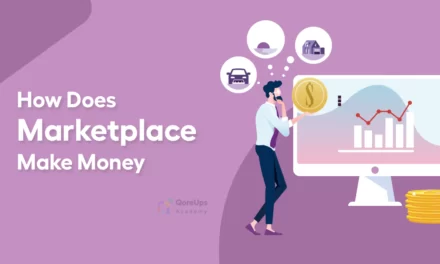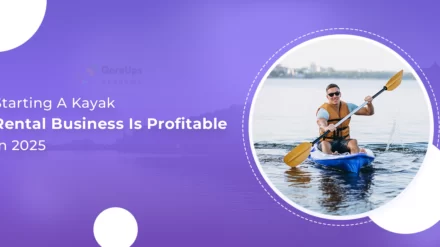In today’s sharing economy, short term rentals have become a booming business.
From vacation homes to urban apartments, the demand for temporary accommodations is on the rise.
To meet this demand efficiently, many entrepreneurs are turning to short term rental software.
But what does it entail to build the best short term rental software, and what are the advantages of venturing into this industry?
Let’s delve into the details.
What Is Short Term Rental Software
Short term rental software is a platform that facilitates the booking, management, and administration of short term rental properties.
It serves as a bridge between property owners or managers and potential guests, providing a seamless experience for both parties.
Key features often include property listings, booking management, payment processing, communication tools, and analytics.
Need Of Short Term Rental Software For Your Business
In today’s competitive short term rental market, having efficient tools to manage your business is not just a luxury but a necessity.
Let’s see why your business needs short term rental software.
Streamline Operations
Automates booking processes, reducing manual intervention.
Eliminates double-booking issues by maintaining real-time availability.
Simplifies guest check-ins and check-outs with features like digital keys or a QR code generator will simplify this process immensely.
Comprehensive Inventory Management
Tracks property availability in real-time, minimizing errors and improving customer satisfaction.
Organizes property details such as descriptions, images, and amenities in one place.
Automatically updates listings across multiple channels (e.g., Airbnb, Booking.com).
Seamless Payment Integration
Supports multiple payment methods (credit cards, PayPal, bank transfers) to accommodate diverse customer preferences.
Provides secure, encrypted payment gateways to protect user data.
Sends automated payment reminders for bookings and outstanding balances.
Enhanced Customer Communication
You may send automated email and SMS alerts for changes, reminders, and confirmations of bookings.
Provides templates for responding to customer inquiries, saving time and ensuring professionalism.
Integrates with CRM systems to personalize guest interactions based on booking history and preferences.
Time and Cost Efficiency
Reduces the need for additional staff to manage bookings, payments, and inventory.
Allows you to focus on scaling your business rather than managing administrative tasks.
Optimizes resource allocation by providing insights into peak booking periods and customer behavior.
Boosts Revenue and Profitability
Provides tools for dynamic pricing, helping you maximize earnings during peak seasons.
Tracks and analyzes business performance, enabling data-driven decisions.
Improves guest satisfaction and retention through better management, leading to positive reviews and repeat bookings.
With tailored solutions, short-term rental software ensures your business stays organized, efficient, and customer-focused.
This all-in-one short term rental platform simplifies the complexities of running a rental business while positioning you for long-term success.

Advantages Of Building Short Term Rental Software
- Increased Efficiency: Short term rental software automates various aspects of property management, such as booking management, calendar synchronization, and guest communication, saving time and reducing the risk of errors.
- Enhanced Guest Experience: With features like online booking, secure payment processing, and real-time messaging, short term rental software enhances the overall guest experience, fostering positive reviews and repeat bookings.
- Optimized Pricing Strategies: Advanced pricing algorithms integrated into the software enable hosts to implement dynamic pricing strategies based on factors such as demand, seasonality, and local events, maximizing rental income.
- Streamlined Operations: Centralized management tools allow property owners and managers to oversee multiple listings, track performance metrics, and generate detailed reports, simplifying day-to-day operations.
- Scalability: As the vacation rental market continues to grow, short term rental software offers scalability, allowing businesses to expand their operations and manage larger inventories with ease.

Cost To Build A Short Term Rental Software
The cost to build a short term rental software can vary significantly depending on several factors, including the development method, features, customization requirements, and the development team’s hourly rates.
Let’s explore three common approaches to building short term rental software and their associated costs.
Building from Scratch
Developing short term rental software from scratch involves creating a custom solution tailored to the specific needs and requirements of the business.
While this approach offers maximum flexibility and control over the features and functionalities, it typically requires a substantial investment of time and resources.
Development Costs
- Software Development: This includes the cost of hiring developers, designers, and project managers to build the software from the ground up. Rates vary depending on location, experience level, and complexity of the project.
- Backend Development: Developing the backend infrastructure for user management, property listings, booking management, payment processing, and other core functionalities.
- Frontend Development: Designing and developing the user interface (UI) and user experience (UX) elements for the software, including property listing pages, search filters, booking forms, and dashboards.
- Integration: Integrating third-party APIs for features such as payment processing, calendar synchronization, geolocation services, and communication tools.
Development Cost Breakdown: $30,000 – $300,000+
- Software Development: $15,000 – $150,000+
- Backend Development: $10,000 – $100,000+
- Frontend Development: $5,000 – $50,000+
- Integration: $5,000 – $50,000+
Infrastructure Costs
- Hosting: The cost of hosting the software on servers or cloud platforms, such as Amazon Web Services (AWS), Google Cloud Platform (GCP), or Microsoft Azure. Pricing depends on factors such as server capacity, storage, bandwidth, and data transfer.
- Database Management: Managing databases to store user data, property information, booking details, and other relevant data securely.
Infrastructure Cost Breakdown: $5,000 – $50,000+
- Hosting: $2,000 – $20,000+
- Database Management: $3,000 – $30,000+
Testing and Quality Assurance (QA)
- Testing: Conducting comprehensive testing to identify and fix bugs, errors, and usability issues before deploying the software to production.
- Quality Assurance: Ensuring that the software meets quality standards and complies with industry regulations and best practices.
Testing And QA Cost Breakdown: $5,000 – $50,000+
Miscellaneous Costs
- Legal and Compliance: Expenses related to legal consultations, licensing fees, and compliance with data protection regulations, such as GDPR or CCPA.
- Documentation: Creating user manuals, developer documentation, and other instructional materials for users and developers.
Miscellaneous Cost Breakdown: $5,000 – $50,000+
- Legal and Compliance: $2,000 – $20,000+
- Documentation: $3,000 – $30,000+
Ready-Made Script
Another option is to purchase a ready-made script or clone script from a third-party vendor and customize it to suit the business’s needs.
Ready-made scripts are pre-built software solutions that come with standard features and functionalities, allowing for faster deployment and lower development costs compared to building from scratch.
Script License
- Purchase Cost: The upfront cost of purchasing a ready-made script or clone script from a third-party vendor. Prices vary depending on the vendor, script features, and licensing terms.
- Approximate Cost For License: $500 – $5,000+
Customization Costs
- Customization: Tailoring the script to meet specific business requirements, such as branding, design customization, feature enhancements, and integration with third-party services.
- Customization Approximate Cost: Customization Costs: $1,000 – $10,000+
Implementation and Setup
- Installation: Setting up the script on the server or hosting platform, configuring settings, and ensuring compatibility with existing systems and infrastructure.
- Customization: Configuring settings, adjusting parameters, and modifying code to align the script with the business’s needs and preferences.
- Approximate Implementation Cost: $500 – $5,000+
Training and Support
- Training: Providing training sessions or tutorials for users and administrators to familiarize them with the script’s features and functionalities.
- Support: Access to technical support and assistance from the script vendor or community forums for troubleshooting issues and resolving technical challenges.
- Training and Support Approximate Cost: $500 – $5,000+
SaaS Rental Platform
These platforms offer a subscription-based model where businesses can access a cloud-based short term rental management software solution hosted and maintained by the provider.
SaaS rental platforms typically come with a range of features and functionalities out-of-the-box, including property management, booking management, payment processing, and customer support.
Subscription Costs
- Monthly or Annual Subscription: The cost of subscribing to the SaaS rental platform, which typically includes access to the software, hosting, maintenance, updates, and technical support.
- Tiered Pricing: Some SaaS platforms offer tiered pricing plans based on the number of users, properties, or additional features included in each plan.
- Approximate Subscription Costs: $50 – $500+ per month
Additional Fees
- Transaction Fees: Some SaaS platforms may charge transaction fees or processing fees for payments processed through the platform.
- Add-Ons: Additional fees may apply for optional add-on features, premium support, or customized services beyond the standard subscription plan.
- Add-Ons Costs: Variable depending on usage and add-ons
Training and Support
- Onboarding: Assistance with onboarding and setup, including account creation, configuration, and data migration from existing systems.
- Customer Support: Access to customer support channels, such as email, live chat, or phone support, for resolving technical issues and answering user inquiries.
- Training and Support: Typically included in the subscription cost
Note:
The costs provided are approximate and can vary based on factors such as project complexity, development team rates, customization requirements, and subscription plans for SaaS platforms.
Businesses need to conduct thorough research and obtain detailed quotes from developers or vendors to accurately estimate the total cost of building short term rental software.

Build A Short Term Rental Software At $49 With QoreUps
Building custom short-term rental software has never been easier or more affordable.
With QoreUps, you can create a solution that is tailored to your specific business needs, starting at just $49.
This cost-effective pricing gives you access to a powerful platform that helps you manage your rental business effectively, without breaking the bank.
Sign up for QMarket
The first step in building your short-term rental software is to sign up for QMarket.
This platform allows you to quickly and easily set up your rental business software, with no technical experience required.
Simply create an account and start exploring the features that will help you run your business efficiently.
Customize the Short Term Rental Software to Your Brand
Once you’ve signed up, you can begin customizing your short-term rental software to reflect your brand.
Add your logo, adjust the color scheme, and personalize the platform to match your business’s identity.
This ensures that your software not only meets your operational needs but also enhances your brand’s visibility and customer experience.
Set Up Inventory and Payment Gateways
Next, you can set up your inventory and payment gateways.
With QoreUps, you can easily manage your rental listings and integrate with trusted payment providers to ensure seamless transactions for both you and your customers.
The platform supports various payment methods, making it easy for your customers to book and pay for their stays.
Launch the Short Term Rental Software
After customization and setup, it’s time to launch your short-term rental software.
With just a few clicks, your rental business will be live, ready to accept bookings and manage guest interactions.
The software’s user-friendly interface ensures that both you and your customers have a seamless experience from start to finish.
Onboard Users To Your Short Term Rental Platform
Now that your short-term rental software is up and running, it’s time to onboard your users.
You can invite property owners, managers, and guests to start using the platform.
With QoreUps’ easy onboarding process, your users can quickly understand how to navigate the software, create listings, and make bookings.

Summing Up,
Short term rental software presents a lucrative opportunity for entrepreneurs looking to capitalize on the growing demand for vacation rentals and temporary accommodations.
By leveraging the advantages of short term rental software, businesses can streamline operations, enhance the guest experience, and optimize revenue generation.
While the cost to build a short term rental software can vary depending on the development method chosen.
The investment is often outweighed by the long-term benefits of efficiency, scalability, and profitability in the dynamic and competitive short term rental market.






